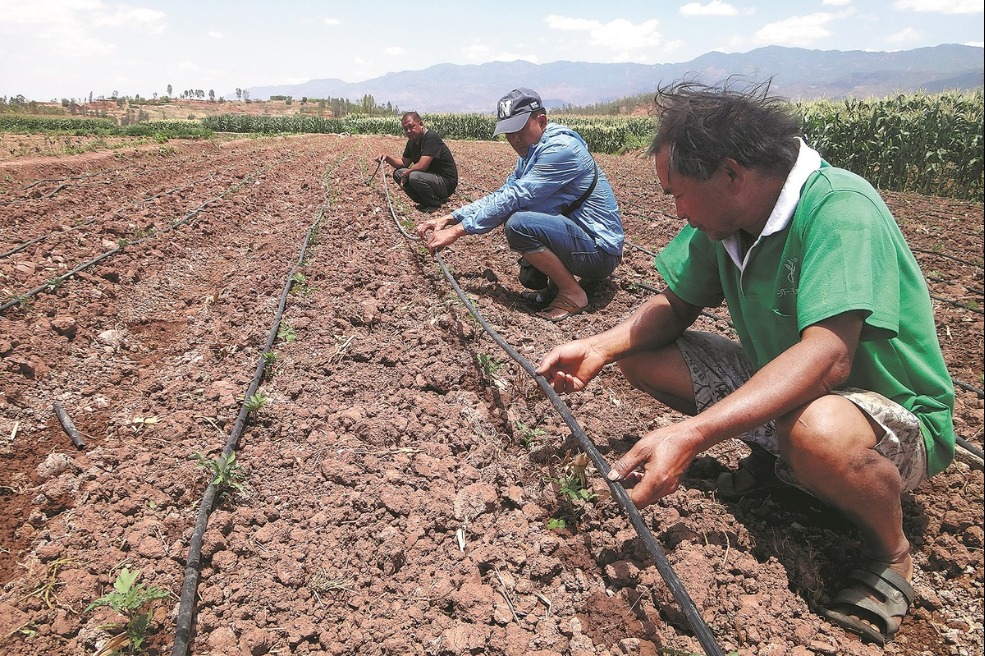Emerging economies' payment system a historical necessity


The 16th BRICS Summit, the first since its historic expansion, will be held in Kazan, Russia, from Tuesday to Thursday. Two subjects that have attracted global attention are whether BRICS would expand its membership and, more important, whether this is the right time to introduce a BRICS international payment system.
Since the dawn of civilization, humans have been exploring more convenient and efficient ways of exchanging goods and services to adapt to the continuously expanding economic activities. With the development of society and the improvement of productivity, payment methods have advanced from the barter system to metal currency, from negotiable instruments or fiat currency to plastic money, and from credit currency to digital payment.
The evolution of payment methods reflects the progress of social productivity and technological prowess. No wonder the fragmented regional monetary and payment systems gradually gave way to the current global monetary and global payment systems after the Bretton Woods agreement.
The monetary and payment systems have not been constant; they have evolved with the development of the social economy. Currency itself has gone through a process of evolution from simple to complex, and from physical (gold and silver) to virtual. The payment system, too, has gradually modernized.
However, the current international payment system, established after the end of World War II, is plagued with increasingly serious problems such as a long processing time and high costs. With the application of new technologies such as blockchain, big data and artificial intelligence, the global payment system, too, should keep pace with the times. This makes the development of new payment systems a historical inevitability.
As a platform for strengthening cooperation and promoting common development among emerging economies and developing countries, BRICS has made remarkable achievements in recent years. After the formal enlargement of BRICS on Jan 1, its member states represent 45 percent of the global population and account for 28 percent of the global economy, with their economic scale surpassing that of the G7 economies.
With the close economic relations among BRICS member states, promoting economic cooperation within the grouping, using local currencies or a common currency to settle business deals within BRICS, reducing economic risks caused by the fluctuations of the US dollar, enhancing the international competitiveness of their own currencies, reducing cross-border payment costs through technological innovation, and improving transaction efficiency are all necessary for the further improvement of the global payment system.
The current global payment system is dominated by the Belgium-based Society for Worldwide Interbank Financial Telecommunication and the US-based Clearing House Interbank Payments System. The two systems are great innovations in global payment methods and a huge contribution made by advanced economies to society, which promoted economic globalization.
Unfortunately, in recent years, some Western powers have weaponized these financial infrastructure facilities, imposing restrictions on the economic activities of many countries across the world. At present, about 10 percent of the countries and one quarter of the global population are under US sanctions, including BRICS member countries.
The current global financial infrastructure facilities were set up by and for the Western countries By excluding some countries from the SWIFT system and prohibiting them from using the dollar (and the euro), the Western powers have tried to cripple their economies. In order to respect for civilizational diversity, provide the world with more choices in global payment systems, promote a fairer and more free global transactions and payments, and reduce the dependence on the West-dominated global payment systems, the BRICS members want to develop an alternative cross-border payment and settlement system.
The establishment of a BRICS global payment system will help strengthen the autonomy of BRICS members and allow them to have a greater say in the international financial and global governance systems. Also, the BRICS payment system will help achieve one of the goals of the United Nations 2030 Agenda for Sustainable Development: promoting the implementation of global development initiatives, and jointly building a global development community.
The BRICS members have been reiterating that the global payment system BRICS will develop will not be anti-West; instead, it will be non-West. The BRICS members just want to provide the world with more and better choices when it comes to global payment systems. The establishment of a BRICS payment system is key to promoting global financial system reform and helping build a more just and reasonable international financial order.
It is therefore clear that the introduction of a BRICS payment system is important for reducing the Global South's dependence on the West-dominated global monetary and global payment systems, and stopping some powers from further weaponizing the global financial infrastructure. It is also important for promoting economic cooperation among BRICS members and strengthening their financial autonomy, supporting the sustainable development of emerging economies, and reforming the global financial system. It should write a new chapter in the history of global payment systems.
The author is deputy secretary-general of the Center for Belt and Road Studies, the Chinese Academy of Social Sciences.
The views don't necessarily reflect those of China Daily.
If you have a specific expertise, or would like to share your thought about our stories, then send us your writings at opinion@chinadaily.com.cn, and comment@chinadaily.com.cn.
































